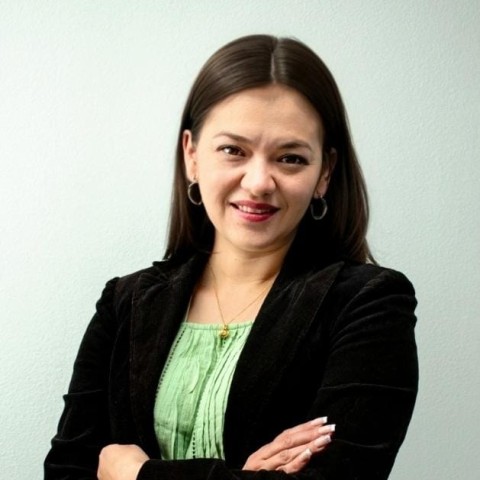Diploma in Strategic Project Management under BIM Protocols - Building Information Modeling 2024
Fechas
Registro
BIM (Building Information Modeling) is a working methodology that allows integrating all stakeholders in the construction industry under a BIM execution plan and organized by modeling protocols for each specialty.
The intention of this methodology is to have all project information in the cloud and in a shared database in a common data environment accessible to all stakeholders. The sequence, monitoring, and workflow are managed by a BIM Manager and supported by a BIM coordinator for each specialty to manage the 3D models uploaded to the digital platform.
BIM management is currently a very important coordination tool in the construction industry due to its impact on the final project cost. Its proper understanding and implementation will allow the development of more efficient and mechanized work processes and methodologies to achieve its goal of optimizing both time and resources.
This diploma aims to provide participants with the necessary knowledge for BIM management and implementation in construction industry projects.
Academic level: intermediate advanced
Objectives:
• Develop skills and abilities in professionals involved in the construction industry in the management and implementation of the BIM Methodology for real estate projects.
• Train participants in the terminology, criteria, concepts, and definitions of the actors and resources necessary for a correct implementation and management of this methodology.
Target Audience:
The program is aimed at professionals and executives responsible for process management, personnel, and coordination tools for real estate projects.
*It is desirable but not mandatory for candidates to have a background in architecture or engineering in any of its disciplines, such as mechanical, industrial, civil works, energy, environment, systems, food, among others.
*Requirements: Knowledge and installation of the following programs on a personal computer: Office (Excel), Windows, Microsoft Project, Revit (basic level), Autocad (basic level), and Navisworks (basic level).
Graduate Profile:
Graduates of the program will be able to:
• Manage BIM project information
• Implement the BIM methodology in real estate projects
• Understand the basic concepts and definitions of BIM regulations
Learning Outcomes:
|
# |
Learning Outcomes |
Level |
|
1 |
Basic knowledge for handling BIM tools |
Medium |
|
2 |
Understanding of the 6 dimensions in BIM |
High |
|
3 |
Identifying the possibilities of applying BIM in real estate projects |
High |
|
4 |
Developing a Know-How to implement BIM |
High |
Modality
Total course duration 120 academic hours divided into 6 modules
- 120 hours in real-time virtual mode with the instructor via zoom.
The teaching methodology of the course is based on the flexible Blended learning model and project-based learning. The instructor will give presentations to students in real-time, encouraging students to participate with their doubts and comments. The more frequent these interventions are, the richer the collective learning will be. Sessions will revolve around particular topics or specific case studies, aiming to provide students with a comprehensive understanding of the theory and its relationship with the current industry context.
Online
120 academic hours distributed across 6 modules
Tuesdays and Thursdays:
18:00-20:30
Saturday:
8:00-10:30
General Public Rate: $1360
Early Payment Rate: $1260
USFQ Community Rate: $1300
Group Rate: $1300
Content
MODULE I. Introduction to BIM Project Management 1D – 2D
Academic Coordinator / Instructor: MBA. Mauricio Sola
Duration: 20 hours
Module Content:
- What is project management.
- Traditional management vs. efficient management.
- Key steps for project management:
- Initiation
- Planning
- Monitoring
- Tools
- Time management
- Resource management
- Results analysis
- Tools for financial project evaluation.
- Latest trends in project management.
MODULE II - 3D BIM Management
Academic Coordinator / Instructor: Architect Giovanni Cisneros
Duration: 30 hours
Module Content:
- Introduction
- Creation of BIM Execution Plan
- Creation of protocols
- Types of information
- Levels of information
- Common data environment
- Levels and systems matrix
- Datum (File)
- Databases (File)
- Importing NWC models into Navisworks
- Phase assignment
- Linking with Microsoft Project
- Schedule for site monitoring
- Reports and reporting
MODULE III - Spreadsheet Applications in BIM 4
Academic Coordinator / Instructor: Lcdo. Wally Cisneros
Duration: 15 hours
Module Content:
- Introduction
- Work environment and interface
- Formulas applied to Construction
- Dropdown lists
- Data validation
- Search and reference functions
- Mathematical functions
- Text functions
- Functions together
- Conditional functions
- Pivot tables
- Dynamic charts
- File links
- Basic macro creation
MODULE IV - BIM Management and Planning 4D
Academic Coordinator / Instructor: Engineer Rosmi Albarrán
Duration: 20 hours
Module Content:
- Agent management
- Document management
- Collaborative work - CDE
- Preparation, coordination, and model review
- Criteria for model linking
- Preparation of interference matrix.
- Interference detection
- Interference Presentation of Dashboards.
- Constructive BIM 4D simulation
- Quantification using Navisworks Manage
- Generation of deliverables
MODULE V - BIM Project Costs and Times 5D
Academic Coordinator / Instructor: Engineer Diego Daqui
Duration: 20 hours
Module Content:
- Introduction to the economic dimension, measurements, and budgets of the federated model
- Actual costs of comprehensive modeling
- Requirements of BIM models for data extraction
- The measurement management process
- Solution to problems encountered in measurement
- BIM budgeting tools
- Introduction to pre-constructive model planning
- Planning methods and linking with project management
- Last Planner System
- Critical points of planning
- Lean Construction Principles
- Decisions and contingencies
- BIM planning tools
MODULE VI - Life Cycle - BIM Energy Efficiency 6D
Academic Coordinator / Instructor: Architect Anabel Sarmiento
Duration: 15 hours
Module Content:
- Introduction to Energy Efficiency in Buildings
- BIM 6D: BIM to BEM"
- Building Envelope Analysis
- Fundamental Physical Principles
- Building Energy Consumption
- Introduction to Energy Model
- Energetic Model in Revit
- Revit + Insight
- Introduction to Advanced Energy Model in Design Builder
- Interoperability with Revit: BIM to BEM
- Energetic simulations
- Basic Design Builder Interface
- Building Energy Consumption Analysis
- Basic integration of simulation results into BIM
Schedule
| April | 8 | Monday | 18:30-19:30 | 1 | Inauguration Session | ||
| 9 | Tuesday | 18:00-21:00 | 3 | Module I. Introduction to BIM Project Management 1D-2D | MBA. Mauricio Sola | What is project management. | |
| 11 | Thursday | 18:00-21:00 | 3 | Traditional management vs. efficient management. | |||
| 13 | Saturday | 8:00-11:00 | 3 | Key steps for project management: | |||
| 16 | Tuesday | 18:00-21:00 | 3 | Initiation/ Planning/ Monitoring | |||
| 18 | Thursday | 18:00-21:00 | 3 | Tools/ Time management/ Resource management | |||
| 20 | Saturday | 8:00-10:00 | 2 | Results analysis and Tools for financial project evaluation | |||
| 23 | Tuesday | 18:00-21:00 | 3 | Latest trends in project management | |||
| 25 | Thursday | 18:00-21:00 | 3 | Module II. 3D BIM Management | Architect Giovanni Cisneros | Introduction and Creation of BIM Execution Plan | |
| 27 | Saturday | 8:00-11:00 | 3 | Creation of protocols | |||
| 30 | Tuesday | 18:00-21:00 | 3 | Types of information/ Levels of information | |||
| May | 7 | Tuesday | 18:00-21:00 | 3 | Common data environment | ||
| 9 | Thursday | 18:00-21:00 | 3 | Levels and systems matrix | |||
| 11 | Saturday | 8:00-11:00 | 3 | Datum (File)/ Databases (File) | |||
| 14 | Tuesday | 18:00-21:00 | 3 | Importing NWC models into Navisworks | |||
| 16 | Thursday | 18:00-21:00 | 3 | Phase assignment/ Linking with Microsoft Project | |||
| 18 | Saturday | 8:00-11:00 | 3 | Schedule for site monitoring | |||
| 21 | Tuesday | 18:00-21:00 | 3 | Reports and reporting | |||
| May | 28 | Tuesday | 18:00-20:00 | 2 | Module III. Spreadsheet Applications in BIM 4D | Lcdo. Wally Cisneros | Introduction/ Work environment and interface |
| 30 | Thursday | 18:00-21:00 | 3 | Formulas applied to Construction/ Dropdown lists/ Data validation | |||
| June | 1 | Saturday | 8:00-10:00 | 2 | Search and reference functions | ||
| 4 | Tuesday | 18:00-20:00 | 2 | Mathematical functions/ Text functions/ Functions together/ Conditional functions | |||
| 6 | Thursday | 18:00-21:00 | 3 | Pivot tables/ Dynamic charts | |||
| 8 | Saturday | 8:00-11:00 | 3 | File links/ Basic macro creation | |||
| 11 | Tuesday | 18:00-21:00 | 3 | Module IV. BIM 4D Management and Planning | Engineer Rosmi Albarrán | Agent management/ Document management | |
| 13 | Thursday | 18:00-21:00 | 3 | Collaborative work - CDE/ Preparation, coordination, and model review | |||
| 15 | Saturday | 8:00-11:00 | 3 | Criteria for model linking/ Interference matrix preparation. | |||
| 18 | Tuesday | 18:00-21:00 | 3 | Interference detection/ Interference Detection Dashboards Presentation. | |||
| 20 | Thursday | 18:00-21:00 | 3 | Constructive simulation BIM 4D | |||
| 22 | Saturday | 8:00-11:00 | 3 | Quantification using Navisworks Manage | |||
| 25 | Tuesday | 18:00-20:00 | 2 | Generation of deliverables | |||
| 27 | Thursday | 18:00-21:00 | 3 | Module V. BIM 5D - Project Costs and Times | Engineer Diego Daqui | Introduction to the economic dimension, measurements, and budgets of the federated model -Real costs of comprehensive modeling -Requirements of BIM models for data extraction -The measurement management process -Solving problems encountered in measurement -BIM budgeting tools |
|
| 29 | Saturday | 8:00-10:00 | 2 | Introduction to pre-constructive model planning -Planning methods and linkage with project management -Last Planner System -Critical points of planning -Lean Construction principles -Decisions and unforeseen events -BIM planning tools |
|||
| July | 2 | Tuesday | 18:00-21:00 | 3 | |||
| 4 | Thursday | 18:00-21:00 | 3 | ||||
| 6 | Saturday | 8:00-11:00 | 3 | ||||
| 9 | Tuesday | 18:00-21:00 | 3 | ||||
| 11 | Thursday | 18:00-21:00 | 3 | ||||
| 13 | Saturday | 8:00-11:00 | 3 | Module VI. BIM 6D - Life Cycle - Energy Efficiency | Architect Anabel Sarmiento | Introduction to Energy Efficiency in Buildings BIM 6D: BIM to BEM Building Envelope Analysis Fundamental Physical Principles Building Energy Consumption |
|
| 16 | Tuesday | 18:00-21:00 | 3 | Introduction to Energy Model Energy Model in Revit Revit + Insight |
|||
| 18 | Thursday | 18:00-21:00 | 3 | Introduction to Advanced Energy Model in Design Builder Interoperability with Revit: BIM to BEM |
|||
| 20 | Saturday | 8:00-11:00 | 3 | Energy simulations Basic Interface Design Builder |
|||
| 23 | Tuesday | 18:00-21:00 | 3 | Building Energy Consumption Analysis Basic integration of simulation results into BIM |
Parameters for Certificate Issuance
Certificate of Approval
At the end of the course, the participant must achieve a minimum grade of 80/100 to obtain their approval diploma and meet a minimum of 80% attendance for the total program.
If the program is successfully completed, the Universidad San Francisco de Quito will grant a certificate of approval for the number of academic hours completed.
The participant who passes the program by meeting the minimum requirements will also receive a digital credential on the Credly platform, allowing them to showcase their academic achievements to their community in a more visual and straightforward manner.
*USFQ will not provide an official Autodesk certificate to the participant. The Diploma requires the use of this tool, but it is not a program about it.
All modules will be evaluated in the same way:
|
Category |
Description |
Percentage of Final Grade |
|
Module 1 |
Quiz (10 points) Assignment (10 points) |
15% |
|
Module 2 |
Quiz (10 points) Assignment (10 points) |
20% |
|
Module 3 |
Quiz (10 points) Assignment (10 points) |
10% |
|
Module 4 |
Quiz (10 points) Assignment (10 points) |
10% |
|
Module 5 |
Quiz (10 points) Assignment (10 points) |
15% |
|
Module 6 |
Quiz (10 points) Assignment (10 points) |
15% |
|
Zoom Sessions (attendance and participation) |
53 sessions. The student must attend at least 80% of the sessions |
15% |
Instructors

Ing. Mauricio Sola
MBA from the University of Cádiz - Spain. MSc in Management from the Université de Management - ADEN Ecuador. Holds diplomas in marketing from USFQ and finance from the University of Valparaíso - Chile. CPA from PUCE and holds certifications as an Internal Auditor ISO 9001-200 and Securities Operator BVQ. Professional with academic background in Finance, Marketing, Sales, and Operations with extensive professional experience leading the creation of Business Units and Work Teams in different areas and industries (Banking, Pharmaceutical, Telecommunications, Retail, Technology Services, Automotive) of important national and multinational companies, maintaining a broad business vision, solid ethical values, and results-oriented focus.

Arq. Giovanni Cisneros
Architect from the Central University of Ecuador. Completed a diploma in Analysis of Seismic Resistant Structures, Foundations, Structural Analysis, Metal Structures, and Seismic Resistance from the College of Civil Engineers of Pichincha. Master's in Education from the American University of Europe - Latin American Council of Schools of Administration. Diploma in Scientific Research for Thesis Work from the American University of Europe. Revit Architecture by Autodesk Certified Professional - Autodesk - SK Workshops - Abstract Training Center. Has served as Secretary of the CAE Provincial Electoral Council, Lecturer at the University San Francisco de Quito, Central University of Ecuador, College of Architects of Ecuador, Construction Chamber of Quito, College of Civil Engineers of Pichincha, Construction Chamber of Quito, among others. International BIM Diploma from the Chamber of Construction Industry.

Lcdo. Wally Cisneros
As an accountant by profession, I have always been immersed in the world of numbers. I have provided my services in various sectors including banking, commerce, floriculture, telecommunications, automotive, and construction. One of the tools that has been instrumental in my professional career is Microsoft Excel. I have effectively applied Excel in each of the companies where I have worked. In the construction industry, Excel is indispensable for tasks such as budget calculation, project control, unit prices, work progress tracking, and accounting control. Excel's versatility extends to its compatibility with other software commonly used in this field. Therefore, my goal is to share my experience with professionals interested in enhancing and expanding their knowledge in this area.

Ing. Rosmi Albarrán
Electrical engineer with extensive experience in the design and modeling of electrical systems in medium and low voltage for residential, mining, and industrial sectors. I am known for my proficiency in utilizing Autodesk tools and the BIM methodology in my daily work. As an instructor of Autodesk applications in BIM methodology, I have experience in training professionals and students in the use of these tools and techniques. I aim to foster a collaborative and constructive learning environment, enabling students to work together to solve problems and achieve objectives.

Ing. Diego Daqui
Civil Engineer with 19 years of experience in Design and Construction of Infrastructure and Building Projects. Proficient in Basic Engineering, Detailed Engineering, and Structural Design. Specializes in Modeling and BIM Coordination for over 200,000 square meters of buildings. Experienced in modeling and coordination of infrastructure projects. Holds diplomas in Structural Engineering from CICP, Geotechnics from the College of Civil Engineers of Jalisco - Mexico, as well as courses in Dynamo, Advanced Revit, Power BI, among others. Master's in BIM Management in Infrastructure and Civil Engineering - EADIC URJC OAS Scholarship recipient. Certificate in Heavy Construction Project Management from the University of Washington. Diploma in Executive Skills and Managerial Program - IDE - Fedexpor.

Arq. Anabel Sarmiento
Architect graduated from the University of Cuenca with a Master's degree in Building and Architectural Engineering from the Polytechnic University of Milan. Her specialization focuses on the multidisciplinary and multi-scale design of buildings, primarily in the areas of technology, energy efficiency, and thermal comfort. She has experience in developing architectural projects at different scales, as well as in the development of executive architectural projects using the BIM methodology. Currently, she works as an Architect and BIM Coordinator at URLO Studio, where she has been involved in the design of residential buildings, offices, and the renovation of existing buildings in both Ecuador and Spain. Additionally, she has held roles in architectural site management and project management.
Register
General Public Rate: $1360
Early Payment Rate: $1260
USFQ Community Rate: $1300
Group Rate: $1300
The program fee can be paid through the following methods:
STEP 1: Make the Payment
Bank Transfer or Cash Deposit
Account Information:
Payable to Universidad San Francisco de Quito
Banco Bolivariano
Current Account No. 5075003350
(RUC: 1791836154001)Payable to Universidad San Francisco de Quito
Banco Pichincha
Current Account No. 3407330004
(RUC: 1791836154001)
Credit Card
Click on the following PAY HERE and fill in the required information on the form. Upon completion, you will be automatically registered in the system.
With Banco Pichincha or Banco de Guayaquil credit cards, you can access the following financing options: 3 and 6 months interest-free, 9 and 12 months with interest.
STEP 2: Confirm Your Payment
If you made the payment via Bank Transfer or Cash Deposit, please send a copy of the deposit slip (scanned) and your personal details (full names, ID, phone, and address) to the following email: rordonez@usfq.edu.ec
* If you require an invoice with different details from the participant's, please specify the following details in the email (business name, RUC/ID, phone, address, and email).
If you made the payment with a Credit Card, there is no need to confirm your payment; the system will automatically register your details.
STEP 3: Registration Confirmation
You will receive a registration confirmation email with relevant course information.
* The program coordination reserves the right to suspend or reschedule the activity if it does not meet the minimum required number of students or due to force majeure reasons. In such cases, the total amount will be refunded to enrolled students as soon as possible.

